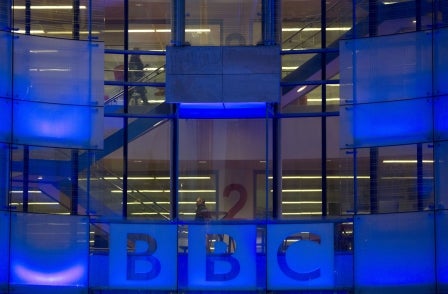
The National Union of Journalists has warned that “quality will suffer” at the BBC after the corporation announced a new round of job cuts for its news staff.
Head of news James Harding yesterday told journalists at the BBC that there would be 75 jobs axed as part of its Delivering Quality First programme. He also warned that some jobs may be lost to compulsory redundancies and that more cuts could not be ruled out.
But the NUJ has warned that the effectiveness of news reporting at the BBC could be affected by the cuts, adding that it would work to ensure there would be no compulsory job losses.
Sue Harris, national broadcasting organiser at the union, said: “These year-on-year cuts are having a huge impact on staff in terms of workload. More than 5,000 jobs went under [former director general] Mark Thompson's Value for Money cost-cutting exercise, that was followed by year-on-year job losses under Delivering Creative Futures and now we have the second tranche of job losses under DQF.
"We will be working hard to ensure there are no compulsory redundancies and that redeployment arrangements work. However, it those left struggling under ever-increasing workloads that I am concerned about. This salami-slicing year after year is creating departments that are too lean to be effective – quality will suffer and staff will be put under stress."
The NUJ has previously gone ahead with strike action at the BBC when it has forced redundancies on to its staff.
Michelle Stanistreet, NUJ general secretary, said: "We are in this position because of the former director general Mark Thompson's shabby, behind-closed-doors, deal with the government. His decision to agree to freeze the licence fee until 2017 and take on an extra £340 million in new financial responsibilities, such as the World Service and the provision of fast broadband, has proved a disaster for the corporation. Last week we watched Thompson and members of the BBC Trust defending £1 million pay-offs to former executives, this week we hear hard-working journalists committed to the BBC and public service broadcasting are to be shown the door."
The DQF programme aims to reduce costs at the BBC by £700m – the equivalent of 20 per cent of its budget – by 2016/17. Around £60m of the savings have been earmarked to come out of the corporation’s English news operation.
Email pged@pressgazette.co.uk to point out mistakes, provide story tips or send in a letter for publication on our "Letters Page" blog
